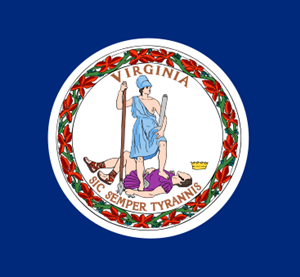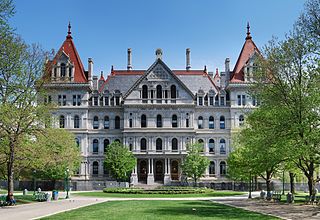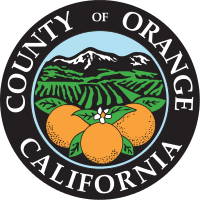July 11, 2016 •
New Executive Director Announced for Virginia’s Ethics Council
The Virginia Conflict of Interest and Ethics Advisory Council has a new executive director. The General Assembly has appointed Stewart Petoe, an attorney from the state’s crime commission, to fill the position left vacant since May. Chris Piper, Petoe’s successor, […]
 The Virginia Conflict of Interest and Ethics Advisory Council has a new executive director.
The Virginia Conflict of Interest and Ethics Advisory Council has a new executive director.
The General Assembly has appointed Stewart Petoe, an attorney from the state’s crime commission, to fill the position left vacant since May. Chris Piper, Petoe’s successor, left after Republican leadership stated they would not confirm Piper because he is not an attorney.
The Council issues advisory opinions and informal guidance on ethics issues and is in charge of collecting financial disclosures from public officials and lobbyists.
The Executive Branch Ethics Commission has launched a new payment application for the 2016 lobbyist employer registration fee. The application is available on any mobile device; however, updated registration statements must be submitted directly to the Ethics Commission. Payments may […]
 The Executive Branch Ethics Commission has launched a new payment application for the 2016 lobbyist employer registration fee.
The Executive Branch Ethics Commission has launched a new payment application for the 2016 lobbyist employer registration fee.
The application is available on any mobile device; however, updated registration statements must be submitted directly to the Ethics Commission.
Payments may be made through the application from July 1 to July 31.
The Oregon Government Ethics Commission has asked Gov. Kate Brown to introduce legislation in 2017 to strengthen lobbying registration requirements. The commission wants to crack down on the registration exception that allows persons spending less than 24 hours or $100 […]
 The Oregon Government Ethics Commission has asked Gov. Kate Brown to introduce legislation in 2017 to strengthen lobbying registration requirements. The commission wants to crack down on the registration exception that allows persons spending less than 24 hours or $100 on lobbying per quarter to avoid registering as lobbyists.
The Oregon Government Ethics Commission has asked Gov. Kate Brown to introduce legislation in 2017 to strengthen lobbying registration requirements. The commission wants to crack down on the registration exception that allows persons spending less than 24 hours or $100 on lobbying per quarter to avoid registering as lobbyists.
Brown has until December 9, 2016 to review proposals from state agencies and file bills for the 2017 session.
July 1, 2016 •
News You Can Use Digest – July 1, 2016
National: Report: It’s harder to know who’s paying for political ads Star Tribune – Geoff Mulvilhill (Associated Press) | Published: 6/27/2016 A report by New York University’s Brennan Center finds the use of so-called dark money in several states has increased […]

National:
Report: It’s harder to know who’s paying for political ads
Star Tribune – Geoff Mulvilhill (Associated Press) | Published: 6/27/2016
A report by New York University’s Brennan Center finds the use of so-called dark money in several states has increased faster than in national elections. Across six states – Alaska, Arizona, California, Colorado, Maine, and Massachusetts – dark money expenditures rose by 38 percent between 2006 and 2014, outstripping the 34 percent rate of increase found in federal elections. And that does not include other categories of nontransparent outside money. The report defines “gray money” as expenditures by entities that do disclose their contributors, but who also list dark money organizations as donors, making it difficult or impossible to locate the original source of the money.
Two Transgender Candidates – Both Named Misty – Just Made History by Winning Primaries
Washington Post – Amber Phillips | Published: 6/29/2016
Primary voters in Utah and Colorado selected transgender women to run for spots in Congress next fall, a first in major-party American political history. Misty Snow will run against U.S. Sen. Mike Lee in Utah this November, while Misty Plowright will challenge U.S. Rep. Doug Lamborn in Colorado. Neither Snow nor Plowright sought to make their gender identities a campaign issue, instead focusing on progressive issues like getting money out of politics. Their wins come as transgender rights have been thrust into the national spotlight after contentious debates in states like North Carolina. “This is even more breathtaking considering the political climate today, the uphill curve to educate people about who transgender people are,” said Bob Witeck, a Washington, D.C.-based LGBT advocate.
Federal:
Bernie Sanders Campaign Showed How to Turn Viral Moments into Money
New York Times – Nick Corasaniti | Published: 6/24/2016
Like most modern campaigns, U.S. Sen. Bernie Sanders and his team relied on widely used digital fundraising tactics, like sending email solicitations and advertising online. They raised more than $61 million and acquired more than three million email addresses directly from digital ads. But the campaign was also able to harness social media networks – which, until recently, most candidates had used primarily for messaging purposes – and turn them into fundraising engines, allowing Sanders’ team to raise money almost exclusively online. The campaign raised roughly $216 million of its nearly $230 million total online.
Donald Trump and R.N.C. Crack Down on Rebelling Delegates
New York Times – Jeremy Peters | Published: 6/26/2016
Donald Trump’s campaign and the Republican National Committee (RNC) are moving quickly and aggressively to head off the fledgling effort to stage a revolt at their July convention in Cleveland, hoping to spare the party an embarrassing spectacle that could deeply wound the presumptive nominee. They are employing hard-nosed tactics, warning delegates that attempting to undermine Trump’s claim to the nomination violates party rules, and threatening to deny speaking slots to Republicans they deem disloyal for not backing him. The RNC and the campaign are also installing loyal party stalwarts in key party positions to help ensure they maintain control of the convention if rogue delegates attempt a disruption. And they are trying to discredit Republicans who are advocating an interpretation of party rules that would allow delegates to vote for anyone they want on the first ballot.
Trump Fundraising Emails Overseas Prompt Complaints Here and Abroad
Washington Post – Sean Sullivan and Max Bearak | Published: 6/29/2016
Donald Trump’s campaign sent a wave of fundraising emails in recent days to lawmakers in the United Kingdom, Iceland, Australia, and elsewhere. The solicitations prompted watchdog groups to file two separate complaints with the FEC alleging the campaign was violating federal law by soliciting funds from foreign nationals. The episode is only the latest fundraising stumble by Trump’s presidential campaign, which has been scrambling to put together a financial operation to take on the well-funded campaign of likely Democratic nominee Hillary Clinton. Whether the snags prove to be growing pains for a campaign that until recently eschewed traditional fundraising or a sign of more serious stumbles to come is a key question facing Trump and the Republican Party as the general election comes into focus.
From the States and Municipalities:
California – At the Corner of Power and Poverty
CALmatters – Laurel Rosenhall | Published: 6/28/2016
The Capitol in Sacramento serves as a magnet for money and power. Nearby shops sell fine cigars and custom suits. A bar serves $16 martinis. But the streets that surround the building also are home to some of the city’s most destitute residents, many suffering from mental illness or drug addiction in addition to extreme poverty. It is not uncommon to see them rifling through trash cans, shouting incoherently, or sleeping barefoot in the shade on the Capitol’s manicured grounds. Bridging these two worlds is Debbie Bartley, who stands across the street selling Homeward, a newspaper produced by homeless people. She chats with the political staffers and lobbyists who give her a few dollars as they pass by. Then she buys food for people who sleep on these streets.
California – Sweeping Public Utilities Commission Changes Announced
Sacramento Bee – Jeremy White | Published: 6/27/2016
A deal between Gov. Jerry Brown and state lawmakers will bring major changes to the California Public Utilities Commission. When commissioners engage in ex-parte conversations around rate-setting rules, they would need to disclose them online under the agreement. The state attorney general could bring enforcement actions against people who violate the rules. The deal also clarifies that people who lobby the PUC would need to register as lobbyists. Through March of this year, more than 50 utilities and other lobbyist employers reported more than $6.3 million in PUC-connected lobbying activities.
Connecticut – Cigna-Anthem Merger: Gov. Malloy’s Insurance Regulator Told Ethics Officials She Was Not Involved in Cigna Issues, even as Her Agency Was
International Business Times – David Sirota | Published: 6/27/2016
Connecticut ethics officials are now investigating whether it is legally permissible for the state’s insurance commissioner to oversee the government’s review of her former company’s proposed merger. In regulators’ probe of conflict-of-interest issues in the Cigna-Anthem transaction, one question they may ask is whether the commissioner in question, former Cigna lobbyist Katharine Wade, deliberately misled them. Emails show that in February, Wade told ethics officials she had no Cigna business before her, even though her agency was then leading the national multistate review of the company’s merger plan, and even though Wade had repeatedly met with the company’s representatives. Wade’s letter to ethics officials did tell them that her staff was reviewing the merger, but did not disclose any information about her own contacts with the companies and their lobbyists.
Delaware – Supreme Court Rejects Challenge to Delaware Election Law
Wilmington News Journal – Jessica Masulli Reyes | Published: 6/28/2016
The U.S. Supreme Court rejected a conservative group’s challenge to Delaware’s campaign finance law. The justices left in place a lower court ruling allowing the 2012 law to be enforced. It requires third-party groups and individuals to disclose their donors to the state elections commissioner if they publish advertisements or other communications, including Internet postings, that refer to a candidate in the 60 days before an election. Previously, only groups that directly advocated for or against a candidate were required to disclose their donors.
Kentucky – Bevin Asserts Control of All Ethics Board Appointments
Lexington Herald-Leader – Jack Brammer | Published: 6/28/2016
Kentucky’s attorney general and state auditor will no longer be able to nominate members of the Executive Branch Ethics Commission under a new executive order from Gov. Matt Bevin. The governor appoints the members of the commission, which investigates allegations of state ethics code violations in the state’s executive branch. But in 2008, then-Gov. Steve Beshear issued an executive order requiring the governor to appoint two members of the commission that had been recommended by the attorney general and the state auditor. Bevin repealed that order, effectively allowing him to control all of the appointments to the board assigned to hold his administration accountable. Bevin spokesperson Jessica Ditto said the order simply returns the appointment process to the system state lawmakers intended.
New York – Bill Would Expand Disclosure for Donors to Lobbying Groups
Albany Times Union – Chris Bragg | Published: 6/29/2016
Under a 2011 law, charitable tax-exempt nonprofits in New York are not required to report their donors, even if the organizations have financially supported lobbying efforts meant to influence state government. Based on comments from state lobbying officials, a bill that Gov. Andrew Cuomo is expected to sign appears to require any charitable organization making a contribution over $2,500 to a substantial New York lobbying campaign to publicly disclose every one of its donors, even those unrelated to the lobbying effort. That would include both donations of staff and other resources for a charity to a lobbying nonprofit, or a monetary contribution.
Ohio – As Activists Prepare to Protest the RNC, the FBI Comes Knocking
Los Angeles Times – Matt Pearce | Published: 6/27/2016
In July, Donald Trump will come to Cleveland to claim the Republican presidential nomination. Given how turbulent some protests outside Trump rallies have been, and that the convention comes just weeks after the worst mass shooting in recent U.S. history, finding the right balance between security and First Amendment rights will be a challenge. Shivers have gone through the Cleveland activist community since law enforcement officials began knocking on their doors as tens of thousands of visitors prepare to come to town. The FBI office in Cleveland said the visits were part of their plans with state and local law enforcement to prepare for the convention by “working collaboratively with members of the community.”
Virginia – Supreme Court Vacates Ex-Virginia Governor’s Graft Conviction
New York Times – Adam Liptak | Published: 6/27/2016
The U.S. Supreme Court unanimously vacated the conviction of former Virginia Gov. Robert McDonnell. He was charged with using his office to help Jonnie Williams Sr., who had provided McDonnell and his wife with gifts worth more than $175,000 when McDonnell was governor. The gifts themselves were legal; the question was whether they were part of a corrupt bargain in which McDonnell reciprocated by using the power of his office to help Williams. The Supreme Court ruled prosecutors defined too broadly the kind of conduct that qualifies as an “official act.” Chief Justice John Roberts said the law cannot punish politicians for giving their constituents access to public officials who are willing to listen, but do not actually exercise government power.
 State and Federal Communications produces a weekly summary of national news, offering more than 60 articles per week focused on ethics, lobbying, and campaign finance.
State and Federal Communications produces a weekly summary of national news, offering more than 60 articles per week focused on ethics, lobbying, and campaign finance.
June 30, 2016 •
Albany County, NY Ethics Commission Names New Chair
During their first fully-staffed meeting in nearly five years, the county Ethics Commission named Shari Calnero as chair. Moving forward, the commission will offer guidance on potential conflicts of interest, financial disclosure requirements, and whether public officials will be required […]
 During their first fully-staffed meeting in nearly five years, the county Ethics Commission named Shari Calnero as chair.
During their first fully-staffed meeting in nearly five years, the county Ethics Commission named Shari Calnero as chair.
Moving forward, the commission will offer guidance on potential conflicts of interest, financial disclosure requirements, and whether public officials will be required to recuse themselves from certain votes. The commission will meet at least once annually, and whenever called upon.
June 30, 2016 •
Orange County, CA Starts to Lay Groundwork for Ethics Commission
The Orange County Board of Supervisors approved a first reading of an ordinance to establish a county ethics commission. The ordinance was introduced after the passage of Measure A, which called for the county to amend its charter and campaign […]
 The Orange County Board of Supervisors approved a first reading of an ordinance to establish a county ethics commission.
The Orange County Board of Supervisors approved a first reading of an ordinance to establish a county ethics commission.
The ordinance was introduced after the passage of Measure A, which called for the county to amend its charter and campaign finance ordinance to establish a five-member commission to provide administrative oversight of county ethics and campaign ordinances.
Discussions at the ordinance’s first reading mostly dealt with staff and budget issues relating to the commission, and there is no timeline yet for when the commission will actually be up and running. The ordinance is scheduled for a second reading and possible adoption on July 12, 2016.
June 29, 2016 •
Wednesday Government Relations News
Campaign Finance “House Democrats Face Ethics Complaints for Fundraising Off Sit-In” by Paul Singer for USA Today “Soft Money Ban Should Be Scrapped, Skeptical Judges Urged” by Kenneth Doyle for Bloomberg BNA “Bernie Sanders Campaign Showed How to Turn Viral […]
 Campaign Finance
Campaign Finance
“House Democrats Face Ethics Complaints for Fundraising Off Sit-In” by Paul Singer for USA Today
“Soft Money Ban Should Be Scrapped, Skeptical Judges Urged” by Kenneth Doyle for Bloomberg BNA
“Bernie Sanders Campaign Showed How to Turn Viral Moments into Money” by Nick Corasaniti for New York Times
Delaware: “Supreme Court Rejects Challenge to Delaware Election Law” by Jessica Masulli Reyes for Wilmington News Journal
Mississippi: “Hosemann to Start Searchable Campaign Finance System” by Geoff Pender for Jackson Clarion-Ledger
Ethics
Kentucky: “Bevin Asserts Control of All Ethics Board Appointments” by Jack Brammer for Lexington Herald-Leader
New Mexico: “Judge: Legislators must testify in Griego case” by Dan Boyd for Albuquerque Journal
North Carolina: “Sen. Fletcher Hartsell Indicted by a Wake County Grand Jury” by Anne Blythe and Lynn Bonner for Raleigh News & Observer
Wisconsin: “New Ethics Commission Names 3 Finalists for Administrator Position” by Matthew DeFour for Wisconsin State Journal
Elections
“As Activists Prepare to Protest the RNC, the FBI Comes Knocking” by Matt Pearce for Los Angeles Times
June 28, 2016 •
Tuesday Lobbying and Campaign Finance News Update
Lobbying California: “Sweeping Public Utilities Commission Changes Announced” by Jeremy White for Sacramento Bee Campaign Finance “Report: It’s harder to know who’s paying for political ads” by Geoff Mulvihill (Associated Press) for Las Vegas Sun Kentucky: “Ethics Commission OKs Crowdfunding […]
 Lobbying
Lobbying
California: “Sweeping Public Utilities Commission Changes Announced” by Jeremy White for Sacramento Bee
Campaign Finance
“Report: It’s harder to know who’s paying for political ads” by Geoff Mulvihill (Associated Press) for Las Vegas Sun
Kentucky: “Ethics Commission OKs Crowdfunding for Legislative Campaigns” by Ryland Barton for WFPL
Massachusetts: “State’s Chief Campaign Official Seeks Heftier Fines for PACs” by Matt Stout for Boston Herald
Ethics
Connecticut: “Cigna-Anthem Merger: Gov. Malloy’s Insurance Regulator Told Ethics Officials She Was Not Involved in Cigna Issues, even as Her Agency Was” by David Sirota for International Business Times
Florida: “Opa-locka’s Ethics Switcheroo Draws Laughs amid FBI Corruption Probe” by Jay Weaver for Miami Herald
South Carolina: “Gov. Nikki Haley Signs Ethics Reform into Law, Endorses Sen. Larry Martin” by Maya Prabhu for Charleston Post & Courier
Virginia: “Supreme Court Vacates Ex-Virginia Governor’s Graft Conviction” by Adam Liptak for New York Times
Elections
“Donald Trump and R.N.C. Crack Down on Rebelling Delegates” by Jeremy Peters for New York Times
Redistricting
North Carolina: “Supreme Court to Review NC’s Use of Race in Redistricting” by Jonathan Drew (Associated Press) for ABC News
June 24, 2016 •
News You Can Use Digest – June 24, 2016
National: Courts, Judges Become Top Political Targets in 2016 Elections Kansas City Star – Dave Helling | Published: 6/17/2016 Experts say that while complaints about legal rulings are as old as the republic, politicians have started turning virtually every race into […]

National:
Courts, Judges Become Top Political Targets in 2016 Elections
Kansas City Star – Dave Helling | Published: 6/17/2016
Experts say that while complaints about legal rulings are as old as the republic, politicians have started turning virtually every race into a referendum on the courts, threatening public confidence in an independent, apolitical judiciary. Not everyone is equally concerned. In a polarized, dysfunctional political climate, some say, making judges more accountable to voters and taxpayers is healthy and inevitable.
The Kochs’ Powerful Operation Isn’t Aimed at Helping Trump – But It Might Anyway
Washington Post – Matea Gold | Published: 6/20/2016
Americans for Prosperity (AFP) launched ground operations on behalf of Republican incumbents in Pennsylvania, Ohio and Wisconsin, the earliest the Koch brothers-affiliated group has ever begun making explicit political appeals in the field. But AFP and other groups in the brothers’ political network are mute when it comes to Donald Trump. It is an odd situation for the powerful conservative operation, which was expected to harness its sprawling machinery on behalf of this year’s Republican nominee. But Trump’s incendiary rhetoric and inconsistent policy stances have dismayed Charles Koch, the billionaire industrialist who leads the network. Koch-backed groups are now training their resources on boosting vulnerable GOP Senate candidates.
Federal:
Democrats End Sit-In on House Floor While Promising to Continue to Press for Gun Votes
Washington Post – Karoun Demirjian, Kelsey Snell, and Ed O’Keefe | Published: 6/23/2016
U.S. House Democrats ended their sit-in protest after occupying the chamber’s floor for more than 25 hours, vowing to take the push for new gun curbs to their congressional districts. Even after Republicans had departed for a week-long recess, roughly a dozen Democrats held the floor, with more trickling in, after a night of loud confrontations with the chamber’s GOP leaders. The Democrats had demanded votes on legislation to expand background checks to all commercial sales and to prevent suspected terrorists from being able to buy guns. Republicans dismissed Democrats’ demands, saying they would not reward the minority party for trampling over the chamber’s rules.
Donald Trump Starts Summer Push with Crippling Money Deficit
New York Times – Nicholas Confesore and Rachel Storey | Published: 6/20/2016
Donald Trump enters the general election campaign laboring under the worst financial and organizational disadvantage of any major party nominee in recent history, placing both his candidacy and his party in political peril. Trump loaned his campaign $2.2 million in May and collected $3.1 million in donations, ending the month with less than $1.3 million in bank, a figure more typical for a campaign for the U.S. House than the White House. Hillary Clinton raised more than $28 million in May and started June with $42 million in cash. Trump has a staff of around 70 people, compared with nearly 700 for Clinton, suggesting only the barest effort toward preparing to contest swing states this fall. And he fired his campaign manager after concerns among allies and donors about his ability to run a competitive race.
Fattah Convicted of Federal Corruption Charges
Philadelphia Inquirer – Jeremy Roebuck | Published: 6/21/2016
U.S. Rep. Chaka Fattah was found guilty of all charges in a federal corruption trial. He and several associates had been charged with 29 counts related to bribery, money laundering, fraud, and racketeering. Fattah borrowed $1 million from a donor during his unsuccessful campaign for Philadelphia mayor and later repaid part of the loan by using funds from charitable and federal grants received by his nonprofit. Prosecutors said he also used funds from his mayoral and congressional campaigns to help pay off his son’s student loan debt. In addition, the indictment said Fattah accepted bribes while trying to secure an ambassadorship or appointment to the U.S. Trade Commission for former Philadelphia Deputy Mayor Herbert Vederman.
The Next ‘Citizens United’ Is Coming
Center for Public Integrity – Carrie Levine | Published: 6/22/2016
James Bopp, who successfully argued the Citizens United case before the U.S. Supreme Court, is now the lead lawyer in the most prominent of a series of lawsuits attempting to further rescind campaign contribution limits. The case brought by the Louisiana Republican Party addresses restrictions on how state and local political parties use soft money to influence federal elections. Bopp’s clients argue if independent outside groups such as super PACs are permitted to raise and spend unlimited amounts of such money, there is no reason why state political parties, acting independently of federal candidates, should be treated differently. Bopp says he will not rest until there are as few election rules as possible since he believes too many rules lead to more opportunities to game the system.
From the States and Municipalities:
California – California Political Watchdog Targets ‘Shadow Lobbyists’
Sacramento Bee – Taryn Luna | Published: 6/21/2016
The California Fair Political Practices Commission (FPPC) is considering a regulatory change to draw “shadow lobbyists,” consultants paid to influence legislation, into the public eye. Loopholes in the law can allow consultants to act as lobbyists without officially registering with the secretary of state’s office, disclosing their clients, or their attempts to sway lawmakers. The FPPC hopes the change increases the incentive for consultants and others working in and around the state’s lobbying industry to keep better records of their activities, while giving the agency more freedom to press cases against shadow lobbyists. The commission is expected to vote on the change at its regularly scheduled hearing on July 21.
Colorado – Colorado Supreme Court to Hear Case Challenging State Ethics Commission’s Role
Denver Post – Joey Bunch | Published: 6/21/2016
The Colorado Supreme Court agreed to hear issues in a case involving then-Secretary of State Scott Gessler, marking the first time the justices have looked at how the Independent Ethics Commission operates since it was created in 2006. The ethics panel found Gessler violated the public trust when he used money from his office discretionary fund to attend a GOP lawyer’s event in Florida. He extended the trip to attend the Republican National Convention (RNC). Gessler paid for his lodging and meals at the RNC with campaign funds. The Supreme Court will look at whether the commission exceeded its jurisdiction to ban gifts of more than $53 a year to public officials and bar them from becoming lobbyists for two years after leaving office.
District of Columbia – Close Council Vote Rejects Campaign Contribution Reform
DCist.com – Rachel Kurzius | Published: 6/21/2016
The District of Columbia Council struck down a proposal to ban campaign contributions from city contractors. Council Chairperson Phil Mendelson had included a provision in a bill to reform the city’s procurement process that would have banned donations from people or businesses that have or are seeking city contracts. He argued that doing so would improve the public perception of the city’s elected officials. But Councilperson Vincent Orange introduced an amendment to strike that language, saying it would lead to “dark money” flooding into city campaigns.
Florida – Florida Lawmaker Wants to Give Away an AR-15
New York Times – Mike McPhate | Published: 6/21/2016
Florida Sen. Greg Evers, a Republican who is running for Congress, said he would hold a drawing whose prize would be an AR-15, a gun similar to the one used by Omar Mateen to kill 49 people at a gay nightclub in Orlando on June 12. Evers said he was considering the giveaway since before the mass shooting, intending to burnish his pro-gun credentials in Florida’s conservative western Panhandle, where he is running to fill the seat being vacated by U.S. Rep. Jeff Miller. But the timing of the announcement, even as funerals for the shooting victims continued, led many commenters on Evers’s campaign site and his Twitter account to express disgust.
Maryland – Here Are the Top Lobbyists in Maryland for the 2016 Legislative Session
Washington Post – Ovetta Wiggins | Published: 6/22/2016
The return of divided government to Maryland has brought about much change in Annapolis. But one thing that has remained the same since the election of Republican Gov. Larry Hogan is Gerard Evans’ upper hand in state lobbying. Evans, a longtime fixture in Annapolis, was the top earner among Maryland lobbyists during the recent legislative session. He reported billing his clients nearly $2 million between November and April, which is about $168,000 more than last year, when he was also the top earner. Bruce Bereano came in second both last year and this year, with reported billings of $1.4 million.
New York – 3 New York Police Commanders Are Arrested on Corruption Charges
New York Times – William Rashbaum and Joseph Goldstein | Published: 6/20/2016
Three New York City police commanders and a business consultant were arrested as part of a wide-ranging federal corruption probe that has also been examining Mayor Bill de Blasio’s campaign fundraising. The latest arrests mark an escalation of an investigation that has led to discipline for nearly a dozen police officers and forced de Blasio to answer questions about whether he engaged in inappropriate fundraising. A criminal complaint accused businessperson Jeremy Reichberg of plying Deputy Chief Michael Harrington, Deputy Inspector James Grant, and others with gifts including prostitutes, sports tickets and expensive trips. As a result, Reichberg was able to secure official favors. De Blasio has said he and his administration have acted legally in all respects. He has not been accused of wrongdoing, and the charges thus far are unrelated to his fundraising efforts.
New York – New York Lawmakers Leave Albany Without Big Ethics Reforms
Albany Times Union – David Klepper (Associated Press) | Published: 6/18/2016
New York Gov. Andrew Cuomo and legislative leaders agreed to an ethics package that aims to strip pensions from public officers convicted of a felony and add disclosure requirements for political consultants who advise elected officials. The session started in January with some bold proposals to fix the state’s porous campaign finance laws, beef up ethics enforcement, and put limits on the pay lawmakers can make from side jobs. But none passed during the six-month session. For good-government groups and officials long bewildered by Albany’s inaction, the resolution was as disappointing as it was unsurprising.
Oregon – Portland Auditor Says Revolving-Door Lobbying Rules ‘All but Unenforceable’
Portland Oregonian – Brad Schmidt | Published: 6/22/2016
A proposed ordinance in Portland would ban elected officials from lobbying the city and bureau directors from lobbying their agencies for two years after they leave office. It would impose a one-year lobbying ban on other city employees. The ordinance is a compromise. City commissioners expressed reservations about a more restrictive version of the bill that was introduced in April. City Auditor Mary Hull Caballero also wants to raise the fine for violating the city’s lobbying rules to $3,000. The new rules would require any group that spends more than $1,000 lobbying in a quarter to disclose a detailed list of each contact with city officials. Right now, that level of transparency is required only for groups that spend at least eight hours lobbying in a quarter, a provision that would continue.
Wisconsin – As the Government Accountability Board Ends, What’s the Future for Wisconsin Campaign Finance Regulation?
Capital Times – Katelyn Ferral | Published: 6/19/2016
Wisconsin’s Government Accountability Board, born in bipartisanship from a legislative scandal in 2001, was the only nonpartisan model of its kind in the country with six former judges appointed by the governor and confirmed by the Senate. It was armed with a budget unfettered by Legislative oversight to investigate campaign finance, ethics, and lobbying complaints. Its dissolution, which came with a rewrite of the state’s campaign finance rules, is a necessary reform to some but step backwards for others who question whether violations of campaign finance law will be aggressively policed.
 State and Federal Communications produces a weekly summary of national news, offering more than 60 articles per week focused on ethics, lobbying, and campaign finance.
State and Federal Communications produces a weekly summary of national news, offering more than 60 articles per week focused on ethics, lobbying, and campaign finance.
June 15, 2016 •
Wednesday Government Relations News
Lobbying New York: “Complaint Charges Unregistered Lobbying for Daily Fantasy Sports” by Chris Bragg for Albany Times Union Ethics “Common Cause Taps Former Connecticut Director as National President” by Staff for Hartford Courant “Lawmakers Charge Park Service Chief Oversees Culture […]
 Lobbying
Lobbying
New York: “Complaint Charges Unregistered Lobbying for Daily Fantasy Sports” by Chris Bragg for Albany Times Union
Ethics
“Common Cause Taps Former Connecticut Director as National President” by Staff for Hartford Courant
“Lawmakers Charge Park Service Chief Oversees Culture of Sexual Harassment” by Lisa Rein for Washington Post
California: “Former State Sen. Ron Calderon’s Guilty Plea in Corruption Case Marks Blow to Political Dynasty” by Joel Rubin and Patrick McGreevy for Los Angeles Times
“Opa-locka Finance Advisor Once Targeted in County Ethics Probe” by Michael Sallah and Jay Weaver for Miami Herald
New Mexico: “Judge Rules AG Can Have Ethics Records in Griego Case” by Dan Boyd for Albuquerque Journal
New York: “How Joseph Percoco, Cuomo’s Problem-Solver, Became a Problem” by Jesse McKinley and Vivian Yee for New York Times
Elections
“Trump Revokes Post Press Credentials, Calling the Paper ‘Dishonest’ and ‘Phony’” by Paul Farhi for Washington Post
“Russian Government Hackers Penetrated DNC, Stole Opposition Research on Trump” by Ellen Nakashima for Washington Post
June 10, 2016 •
Administrator Sought for Wisconsin’s New Ethics Commission
Wisconsin’s new Ethics Commission will begin its work on June 30. It is one of two commissions created to replace the Government Accountability Board (GAB). Twenty-three people submitted applications to be the first commission administrator; the GAB released a list […]
 Wisconsin’s new Ethics Commission will begin its work on June 30. It is one of two commissions created to replace the Government Accountability Board (GAB).
Wisconsin’s new Ethics Commission will begin its work on June 30. It is one of two commissions created to replace the Government Accountability Board (GAB).
Twenty-three people submitted applications to be the first commission administrator; the GAB released a list of their names and hometowns Thursday.
Applicants include Paul Dauphinais, head of the Alaska Public Offices Commission, and Bre Injeski, deputy director of New York City’s Conflict of Interest Board. The position is a four-year term subject to Senate confirmation.
On June 22, lobbyists in Texas will be required to include previously excluded types of compensation when reporting lobbyist activity. On June 1, the Texas Ethics Commission adopted rules changing some regulations. One regulation currently allows for compensation exceptions for […]
 On June 22, lobbyists in Texas will be required to include previously excluded types of compensation when reporting lobbyist activity. On June 1, the Texas Ethics Commission adopted rules changing some regulations.
On June 22, lobbyists in Texas will be required to include previously excluded types of compensation when reporting lobbyist activity. On June 1, the Texas Ethics Commission adopted rules changing some regulations.
One regulation currently allows for compensation exceptions for purposes of calculating the threshold requiring registration as a lobbyist. Those same exceptions were also exempted from lobbyist activity reporting. Effective June 22, those exceptions for calculating the registration threshold remain, but registered lobbyists will now have to report those types of compensation.
Additionally, the Ethics Commission enacted a rule narrowing the gift exemption for permissible fact-finding trips provided to government officials and employees by lobbyists.
May 11, 2016 •
Director of Wisconsin GAB to Retire
Kevin Kennedy, director of the Government Accountability Board (GAB), will retire June 29, just before the agency is replaced by two new commissions. Kennedy was the director of the state Elections Board prior to serving as director of the GAB, […]
 Kevin Kennedy, director of the Government Accountability Board (GAB), will retire June 29, just before the agency is replaced by two new commissions.
Kevin Kennedy, director of the Government Accountability Board (GAB), will retire June 29, just before the agency is replaced by two new commissions.
Kennedy was the director of the state Elections Board prior to serving as director of the GAB, and has presided over state elections for the last 37 years.
GAB will be replaced by an ethics commission and an elections commission on June 30. While the new commissions will be partisan, the Republicans who backed the change argue it will be fair because each party will have equal representation.
May 3, 2016 •
SF Ethics Commission to Hold Interested Persons Meetings
The San Francisco Ethics Commission has announced two interested persons meetings on May 11 and May 16 to discuss a proposed November 2016 ballot measure that would ask San Francisco voters to place new restrictions on lobbyist contributions, bundling of […]
 The San Francisco Ethics Commission has announced two interested persons meetings on May 11 and May 16 to discuss a proposed November 2016 ballot measure that would ask San Francisco voters to place new restrictions on lobbyist contributions, bundling of contributions by lobbyists, and gifts from lobbyists.
The San Francisco Ethics Commission has announced two interested persons meetings on May 11 and May 16 to discuss a proposed November 2016 ballot measure that would ask San Francisco voters to place new restrictions on lobbyist contributions, bundling of contributions by lobbyists, and gifts from lobbyists.
The feedback from these meetings will be used in the analysis and recommendations on the proposed ballot measure presented at the May 23, 2016 commission meeting.
Written comments and RSVPs can be sent via email to ethics.commission@sfgov.org.
State and Federal Communications, Inc. provides research and consulting services for government relations professionals on lobbying laws, procurement lobbying laws, political contribution laws in the United States and Canada. Learn more by visiting stateandfed.com.


